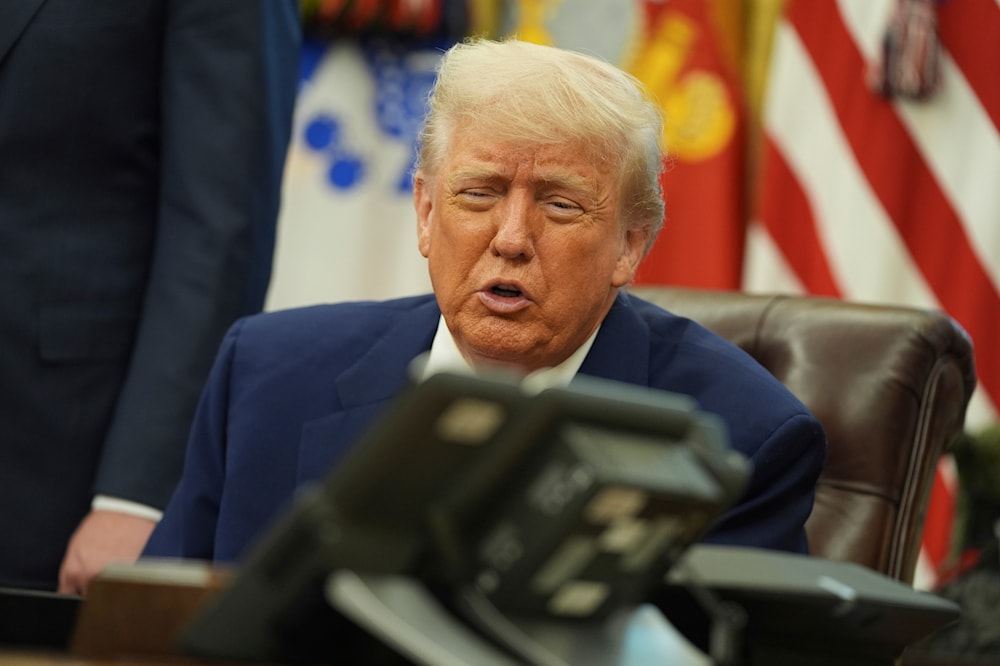Trump, Starmer strike 'breakthrough' US-UK trade deal
A new US-UK trade pact offers tariff relief and expanded access for US agriculture but leaves critical sectors unresolved as both nations face global economic headwinds.
-

President Donald Trump speaks on the phone to Britain's Prime Minister Keir Starmer about a trade deal between the US and the United Kingdom in the Oval Office of the White House, Thursday, May 8, 2025, in Washington. (AP)
US President Donald Trump and UK Prime Minister Keir Starmer have announced a new bilateral trade agreement, described by both leaders as a “breakthrough” in transatlantic economic relations. The deal marks the first major shift in Trump’s ongoing global tariff strategy and offers a symbolic boost to Starmer as he seeks to assert the UK’s independent post-Brexit trade identity.
Speaking from the Oval Office on Thursday, Trump framed the deal as the first in a series of upcoming bilateral pacts. “We have reached a breakthrough trade deal with the United Kingdom,” he said. “It includes billions of dollars in increased market access for American exports, especially agriculture.”
The agreement reduces tariffs on British automobiles and steel, with car tariffs dropping from 27.5% to 10%, according to UK officials. However, a 10% base levy on British exports to the US remains in place, and several sensitive sectors, including pharmaceuticals and digital trade, were left outside the scope of this initial deal.
A UK government source described the agreement as a “general terms document,” setting the framework for future negotiations. Trump, pushing back on media suggestions that he exaggerated the scope, said, “This is a maxed-out deal, not like you said it really incorrectly… We’re going to be doing a lot more.”
UK opens to US agriculture amid public skepticism
In exchange, Britain has agreed to expand access to its markets for US beef and agricultural products, concessions that have stirred public unease over food safety and regulatory standards. Consumer advocacy groups in the UK have long opposed easing restrictions on US imports that they consider environmentally or ethically questionable.
During a visit to a Jaguar Land Rover facility in the Midlands, Starmer celebrated the deal’s potential economic impact on the UK auto sector. “That is a huge and important reduction,” he said, referring to the lowered car tariffs. He linked the timing to the anniversary of the Allied victory over Nazi Germany, branding it a “really fantastic, historic day.”
Tactical pause in escalation
The agreement follows Starmer’s February visit to Washington, during which he extended an invitation for a state visit from King Charles III, part of a broader diplomatic push to reset UK foreign policy. That effort also included the announcement of a free trade deal with India earlier this week, Britain's largest such pact since its exit from the European Union.
For Trump, who imposed new 10% tariffs on a range of global imports in April, the UK deal marks a tactical pause in escalation. While the UK has avoided retaliation thus far, trade relations with other allies remain tense. The European Union, still negotiating its own deal with Washington, has threatened tariffs on US automobiles and aircraft if talks collapse.
As London prepares for an upcoming EU-UK summit on May 19, the new US trade deal signals progress, but observers caution that comprehensive agreements on pharmaceuticals, data, and digital services remain far from resolved.

 3 Min Read
3 Min Read








